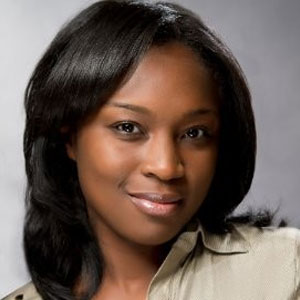Introduction and Interview of A. Beatrice Adenodi by David Wagstaff
This interview with Beatrice is part of a series of articles from entrepreneurs, compiled with the goal of providing other business owners and soon-to-be business owners with a realistic view of what it takes to run a business and some of the challenges commonly faced.
I first learned about Beatrice as I was reviewing applications for the Entrepreneur’s Network. I was immediately drawn to her headline – Creative Entrepreneur. I saw she characterizes her specialty as experiential marketing. That made me curious to learn more about her.
As a small business owner, I’m always interested in learning more about ways I can grow my business. I liked that she works with a diverse group of people. In the corporate world, corporate diversity initiatives have helped further progressive thinking. Diversity to me can include racial diversity, age diversity, life experience diversity, sexual diversity, diversity of thoughts, and so much more.
As small business owners, we may not have access to the same thought leaders as large corporate training provides, but I think continued learning can become equally or even more important. If we work from a home office, or even small office, we may find it’s easiest to work with people who look like us, talk like us, live near us and have similar ways of thinking.
Given that the world is diverse, not experiencing the richness diversity can bring limits our ability to best serve our clients and customers. I liked that Beatrice spoke about that because I feel its important as small business owners to be present to diversity and present to actions, we may take unconsciously to limit our own world view, team members and customers.
To drive this point home, a few years ago I started a business that had a social mission, and I felt like I was very progressive and aware. Then I met with a large organization I wanted to have as a business partner. They had over 100,000 customers and over a $100 million operating budget. If they partnered with us, their support could have totally transformed our young startup. As part of a multi-hour meeting, they asked about our view and commitment to diversity. In my heart, I felt committed to diversity. Then they asked about our website and the images of nearly 100% Caucasians. I was shocked.
In the rush to get the website up and running, I had been blind to that. My designer was in South America and was Hispanic, but he had chosen nearly 100% images of Caucasians, potentially believing that was what I wanted. It may have been because the stock photo websites have far more images of Caucasians, especially farming-related images. Perhaps even worse, I didn’t have a good answer. I had been completely blind to a website of Caucasians. Had the photo been of any other race, I would have noticed.
I could not get past that the rest of the day. I felt guilty. I had been blind to an issue I cared about and had approved a website that was inadvertently discriminatory. That afternoon I contacted my designer and had him make changes to our images, but the damage was done, and I learned an important lesson.
Often, these biases aren’t something we consciously think about particularly when we are in the majority. I could talk more about these inadvertent bases in hiring but will save it for another article. As I read more in Beatrice’s profile, I also learned she had experience working with over 500 different brands. I liked that her profile told a little about her, experience growing up in New Orleans, passion for the city and a tradition and love of music.
As I went through the interview with Beatrice, I loved her opening, “not wanting normal”. It reminded me of the interview with James Chang and his dissatisfaction with the status quo. I spoke about this in his interview – it’s a common theme for many entrepreneurs.
Beatrice also talks about a lifestyle where she does not need a vacation. I relate to that – I have a passion for helping business owners succeed, and for me, it is work that is fun and very satisfying. Whereas other people enjoy watching a sporting event on the weekends, I enjoy working for my clients and on my own business.
As we read Beatrice’s business description, we get a sense of what she does, but it’s not as refined as we see in the article with Jenny Hale. If you recall in that interview, we found that in just 13 words, Jenny clearly defined her customers and her business model. Beatrice is giving us a sense for the types of projects she works on including marketing, planning, events and branding.
It’s an interesting lesson Beatrice has learned about the importance of numbers in marketing. When I hire people in marketing, I do look for value, but I am most impressed when people can provide me with a sense for the return on investment they will provide. In the absence of confidence in what I will get, I often try out the business with the lowest price. As an example, I recently hired several firms to help me with an SEO project. I found a source through Upwork where I could find people at a very low rate.
I hired three people with a variety of rates, and then another volunteered to do the initial work to prove their value. Interestingly, the firm that did the work for free was the one that did the best job – they were confident in their skills and proved it. I ended up hiring them for the job. Then for a different but related job, I found a firm that said all the right things when I spoke with them. The person I spoke with was clearly knowledgable. I hired them at 20 times the cost of any of the other providers. But at the end of the day, they didn’t know how to execute on what they had promised and absolutely failed to deliver. It cost me ranking on keywords during my website conversion.
My point in this section is agreeing with Beatrice – numbers in marketing matter more than experience, degrees or how well spoken someone is or isn’t. In marketing, people pay for results. Marketing is increasingly a number based, quantifiable field. We can measure engagement, conversation, sales, cost per click and perhaps most importantly, cost per new customer compared to the lifetime value of a customer.

What led you to become an entrepreneur?
The” normal” is far from what I ever wanted for my life. I wanted the freedom to create my own schedule, a lifestyle that I do not need a vacation, and create my own opportunities that would not have been readily available if I were to work for a corporation. I decided to become an entrepreneur for many reasons, but the main issue was that I felt disposable working for a large company.
I felt like that when I worked for many organizations; there was a lack of a voice that I had, with minimum opportunities for meaningful career progression. I was constantly proving my worth to another person at no end. Entrepreneurship allows me the ability to create multiple streams of income for myself, building relationships, and enhance my talents.
A brief description of your business and what are your aspirations for it?
I am the owner of Mirror Ink, which is a creative consulting firm that enhances the creative process of a business and its projects. We specialize in logistics, strategy and planning that will transform your ideas into gold. With the services and knowledge offered, Mirror Ink meets clients where they are at in their marketing, events and branding initiatives. I aspire to work with small businesses and entrepreneurs in clearing up the communication barriers in their brand messaging.
What have you done with your business that you are proud of or that has worked really well?
In 2018, I launched my second business called Mindless Behaviors LLC, which is a human liberation organization that addresses the unconscious bias and unintended actions that keep us stuck in our daily lives. It is a passion initiative that I have been working on for many years before it was launched last year. I am proud of this because it allows me to enhance my business practices with Mirror Ink and offer communication tools to get to the bottom of business messaging faster and clear up communication barriers. My awareness platform also made me realize the importance of balance in business and personal life, and that segregating the two can often do more harm than good.
What were some of your biggest challenges along the way?
Showing my value and that the services that I provide are needed. Being a woman within the business world is also a challenge. As a creative selling my services to businesses, I noticed that numbers often trump experience and communication with potential clients.
Have you overcome the challenges? If so how?
I overcome my challenges by being creative in how I present my services. I grow to understand the clients that I potentially want to service and tailor my messaging based on their needs. I do not over promise and under deliver in what I can produce for my clients.
What have you learned and what would you like to share with other entrepreneurs?
Being an entrepreneur has taught me a lot of lessons throughout the years. I learned about products and/or services in multiple industries, establishing a balance in my business and personal life, adapting to working with people of diverse backgrounds through effective communication, and the importance of building relationships that are mutually beneficial.
As an entrepreneur, is it very important to understand your clients’ needs and offer products and/or services that best fit their needs. Establish boundaries within your craft and build strategic partnerships to reach a common goal. Just because you are an expert in your field does not mean you know it all; never stop learning. Lastly, be humble in every experience and failure that happens throughout your journey.
Is there anyone you would like to meet or connect with? For example, investors in the electrical industry, mentors in the publishing industry. A knowledgeable SEO person. Specific is helpful.
I would love to meet small business owners, executives and investors looking from my services.


